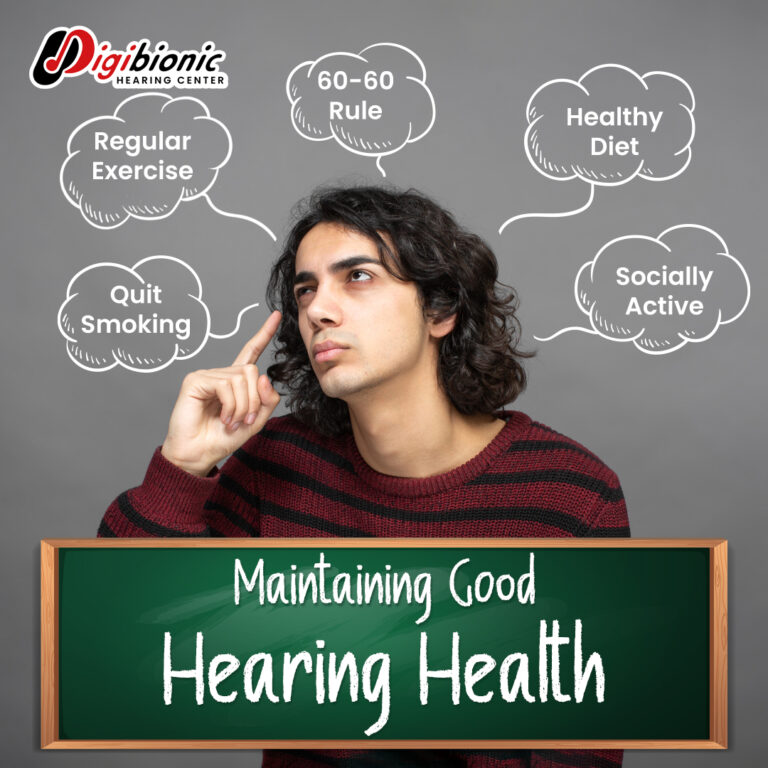Diseases and Hearing Loss: Things You Need to Know
- May 24, 2024
- Written By Digibionic India
Coronary Artery Disease
Heart and blood vessel disease, commonly caused by atherosclerosis, leads to blockages in the arteries and poor blood circulation, resulting in various conditions such as heart disease, stroke, and hearing loss. Examples of heart and blood vessel diseases include coronary artery disease, cerebral artery disease, heart failure, arrhythmias, and heart valve diseases. Severe cases can be fatal.
How do we hear?
Before considering the connection between coronary artery disease and hearing loss, let’s understand the basics of hearing. When sound waves enter the ear (specifically the outer ear), these waves are filtered, amplified, and directed into the ear canal towards the eardrum. Behind the eardrum lies the middle ear, which contains three ear bones: the malleus, incus, and stapes.
When the eardrum vibrates, the malleus (hammer), connected to it, also vibrates. These vibrations are then transmitted to the incus (anvil), which in turn moves the stirrup bone (stapes). The stirrup bone pushes against the oval window, a membrane-covered opening leading into the inner ear. This movement amplifies the energy of the sound.
Vibrations from the stirrup bone cause vibrations in the fluid-filled cochlea (inner ear), specifically in the cochlear fluid. These fluid vibrations are converted into electrical energy by hair cells in the cochlea’s organ of Corti. This process generates auditory signals that the human body can send and receive.

Blood Circulation Issues and Hearing Loss?
In the cochlear explanation mentioned earlier, tiny hair cells rely on good blood circulation to receive nutrients and convert gathered vibrations into electrical signals for nerve currents and brain perception. “Poor blood circulation” can damage these hair cells due to oxygen deficiency, as they do not regenerate. This can lead to permanent hearing loss.
Conditions like coronary artery disease or other vascular issues may cause a pulsating sound similar to heartbeats and blood flow in the ears, medically termed “pulsatile tinnitus.” It often affects women more than men. If rhythmic ear symptoms are suspected, MRI or CT scans of the blood vessels and bones around the ear are necessary to determine the patient’s underlying cause.
Brain Artery Disease and Hearing Loss
Brain artery disease, sudden abnormality in parts or all of the brain due to blockages or ruptures in brain arteries, can damage hearing and balance areas, causing symptoms like hearing loss or dizziness. Besides brain artery disease, a 2016 study showed that patients with this condition were significantly more likely to experience sudden hearing loss compared to those without, suggesting a sudden hearing loss risk factor.
Besides heart artery disease, other high-risk factors like smoking, high blood pressure, genetics, diabetes, obesity, and advanced age may also contribute to hearing loss.
Diabetes and Hearing Loss
High blood sugar levels from diabetes can damage the walls of small blood vessels, impairing nerve nutrition and functionality. If this affects cochlear hair cells, it not only causes hearing loss but also reduces balance control, increasing the risk of falls. Due to these causes, it is evident that heart artery disease and hearing loss are closely related.
Therefore, if your relatives or friends have these conditions, it is advisable to monitor their hearing status every six months. If hearing loss is suspected, seek an appointment with an audiologist for a hearing assessment, followed by appropriate treatment or hearing aids, which can help maintain communication skills and quality of life.
Recommended Articles
Why Noise Cancellation is Important in Hearing Aids?
Early Action & Daily Habits for Better Hearing Health
Selection Guide for the Best Hearing Aids for Your Parents
25 February, 2025 Written by Digibionic India As our parents age, maintaining their quality of…








